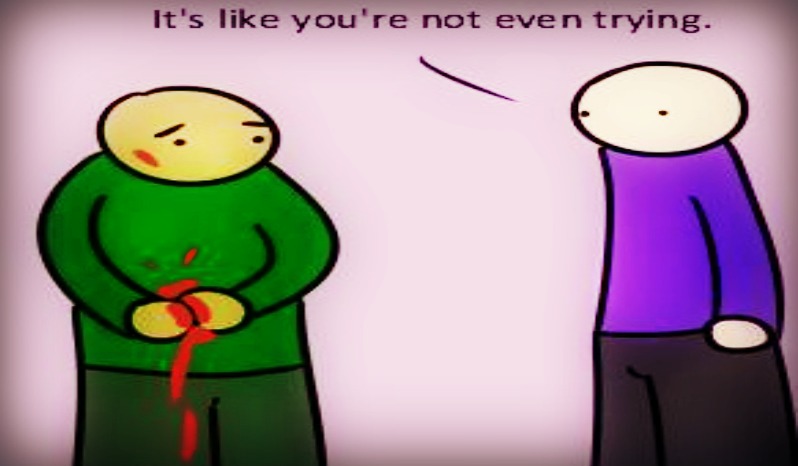
Changing the Way We Feel About Mental Illness
Written by Cristo Rogers, Posted on , in Section Therapy News
What If Physical Diseases Were Treated Like Mental Illnesses?
As many as one out of four Americans suffer from at least one type of mental illness. In fact, one in six adults will admit to having a mental disorder this week alone. I guess you could say we have an issue with mental illness in this country; an issue that goes largely ignored.
But, if so many millions of Americans suffer from mental illness, why is so much is suffering falling on deaf ears?
Unfortunately, the way we (the American people) perceive and stigmatize mental illness is to blame for our lack of concern on the matter. Rather than treating mental illness as the disease that it is, we look down upon those who are afflicted or even make light of their situation. Or worse, we completely ignore their condition altogether because it makes us uncomfortable.
The treatment of mental illness -or lack thereof- is utterly disgraceful in this country. Our ignorant persecution and mistreatment of those who suffer from a mental illness is a contributing factor as to why our nation has failed and alienated tens of millions of its suffering people. Needless to say, it's about time we changed the way we think, treat and pay attention to mental illness.
World Health Organization: Changing the Way We Think About Mental Illness
Today, the World Health Organization (WHO) is doing everything they can to change the way our nation looks at mental health and is working to educate people on how to approach mental illness.
October 10, is the WHO's World Mental Health day. The organization uses this day to address the enormous amounts of misinformation regarding mental health, by further challenging the misconceptions that prevent millions of people from talking about their mental illness
One of the misconceptions WHO aims to tackle is: mental illness is a lack of strength or willpower of those who suffer. The organization argues that we would treat mental illnesses a lot differently if they were as visible as physical diseases.
The organization uses a clever cartoon illustrated by Robert Hugs to further illustrate their point:

WHO states that mental health doesn't discriminate and can affect people from all different walks of life. Celebrities, children, parents, CEO's, athletes, coaches, world leaders and even you, can be affected by the debilitating disorders of mental illness.
It's time we finally put stereotypes surrounding mental illness to bed. We don't need to be directly affected by mental illness in order to be educated on empathy. Next time you discover someone you know is suffering, remember: It could very easily be you who suffers.
